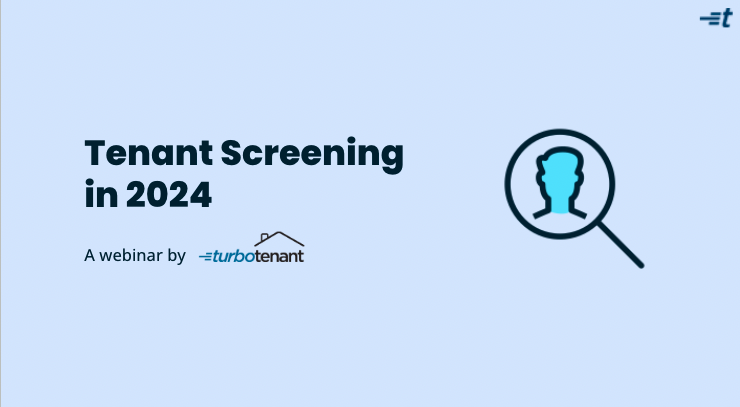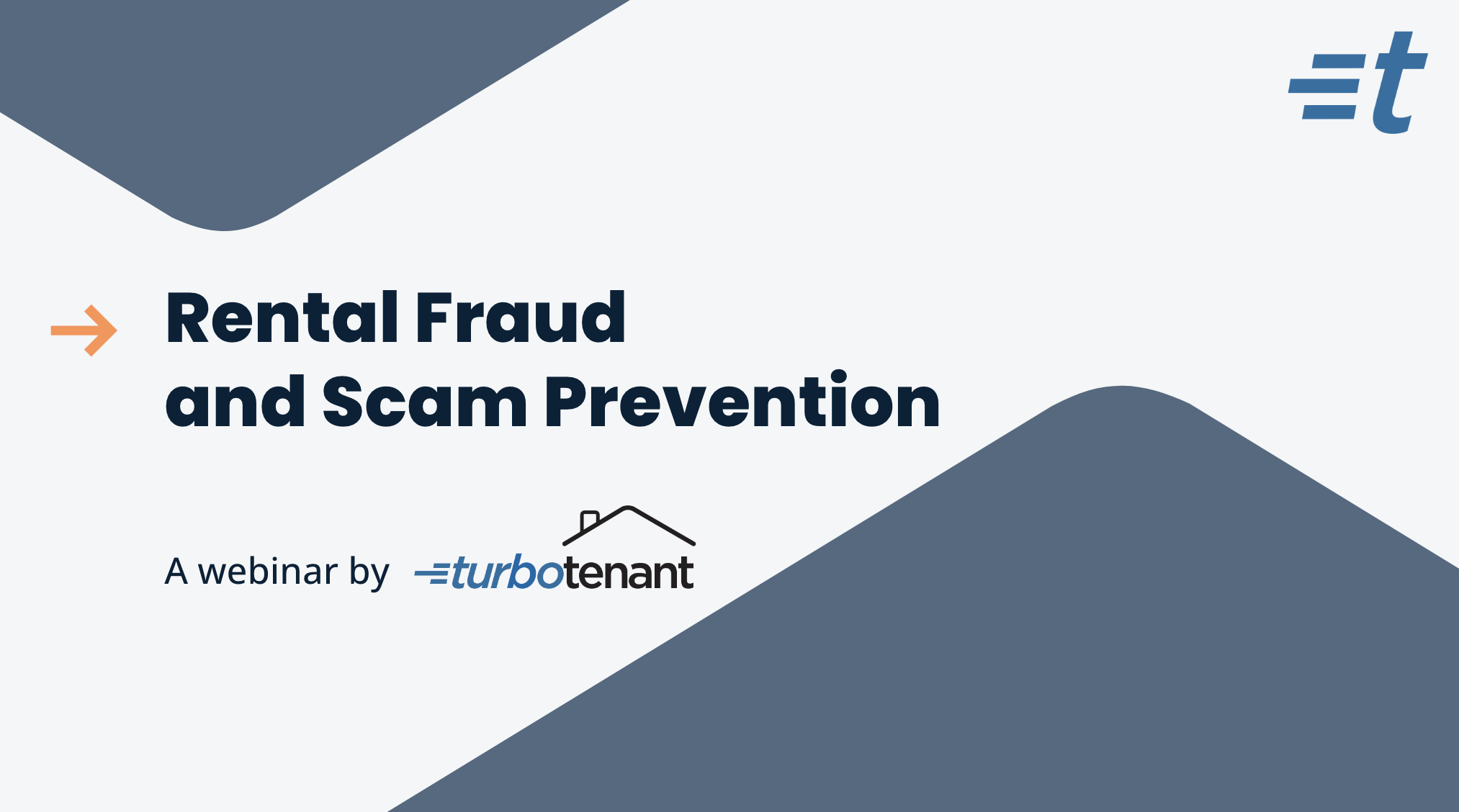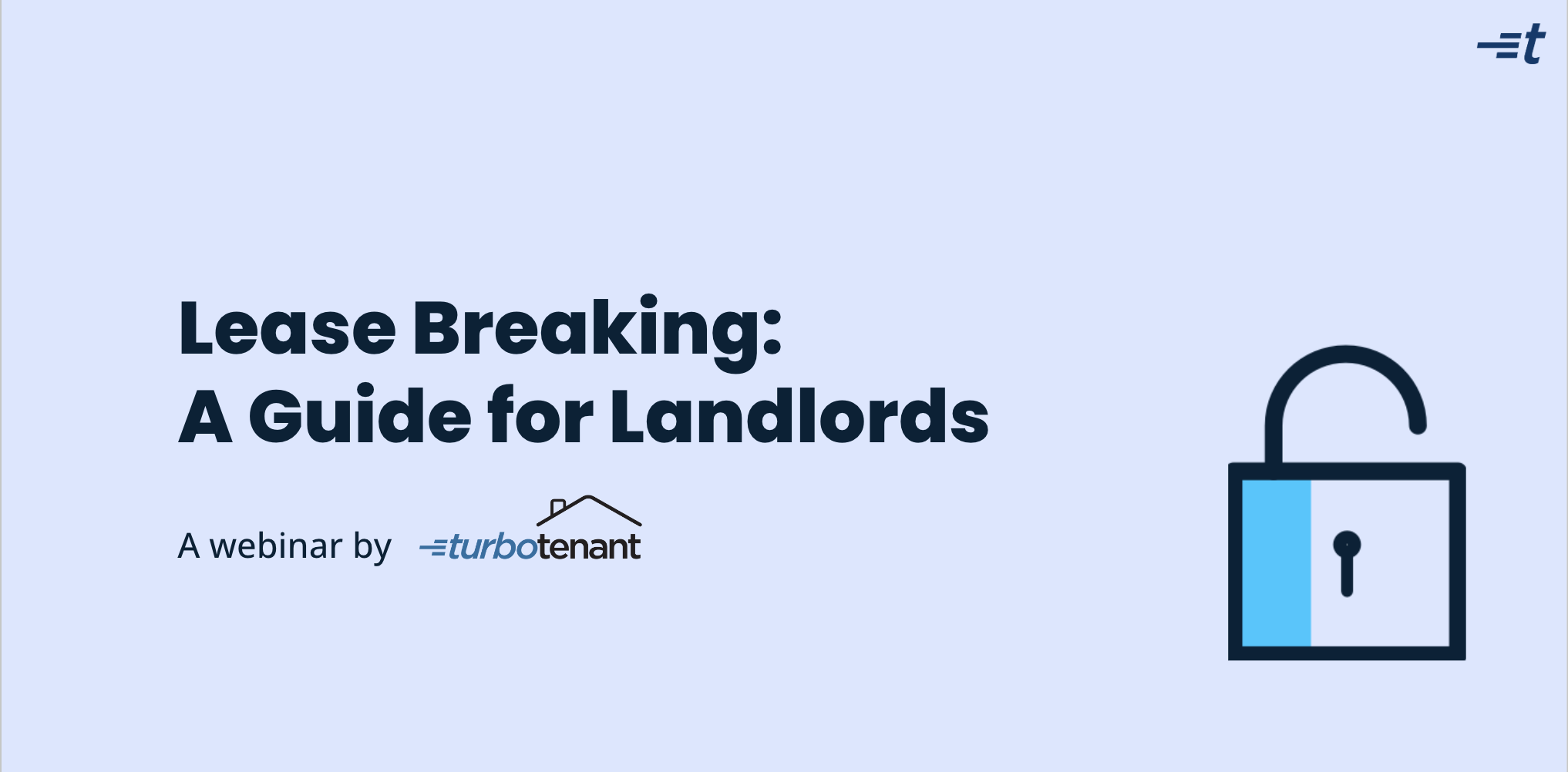Establishing Your Legacy Webinar
In this webinar, we discuss establishing your legacy as landlords and real estate investors. Kendra Strong-Tehrani, a seasoned real estate investor and attorney, shares her expertise on asset protection and estate planning, covering key topics such as insurance, LLCs, and trusts. Join us to gain insights on how to safeguard your assets and ensure your legacy is protected.
Key Takeaways
- Establishing a Legacy: Emphasizing the importance of legacy building for landlords and real estate investors, highlighting asset protection, insurance, and estate planning as pivotal components.
- Education on Legal Structures: The need for landlords to be well-informed about legal structures like LLCs and trusts to protect assets effectively.
- Importance of Proper Insurance: Understanding that adequate insurance coverage is crucial for protecting against potential liabilities associated with property ownership.
- Strategic Use of LLCs: Encouraging the use of Limited Liability Companies (LLCs) to separate and shield individual properties, enhancing asset protection.
- Estate Planning Essentials: Stressing the necessity of estate planning, including revocable living trusts, to avoid probate and ensure efficient management and transfer of assets.
- Understanding Trusts: Differentiating between revocable and irrevocable trusts, emphasizing how they impact control and tax implications of assets.
- Holistic Approach to Asset Management: Advocating for a comprehensive approach involving trusts, LLCs, and proper estate planning to safeguard assets, manage taxes, and provide peace of mind.
- Professional Guidance: Recommending consultation with professionals like estate planning attorneys and CPAs to tailor strategies to individual needs and legal requirements.
Top questions asked by the audience:
Can you set up one of your properties to be in an LLC if there’s still a mortgage attached?
Yes, you’re able to transfer properties into an LLC. My advice on this matter is to have a conversation with your mortgage lender beforehand. There are often clauses within mortgage agreements, known as “due-on-sale” clauses, that could technically be triggered by such transfers. However, if you clearly explain to them that the transfer of the property into an LLC is purely for asset protection and insurance purposes, not an actual sale, they often understand.
I’ve never encountered a situation where an insurance company has pursued any of my clients for transferring property into an LLC, demanding immediate payment of the remaining mortgage balance. Remember to explain that it is still under your control—it’s asset protection, not a sale to a third party.
It’s also worth noting that your primary residence usually has additional protections, making it distinct from investment properties when considering transferring it into an LLC. Always ensure proper communication with your mortgage holder to avoid any unnecessary complications.
Do you need an EIN for each property if you are putting them into LLCs?
No, you don’t need a separate EIN for each property within your LLCs. This is an excellent question for your CPA, as it can depend on how you choose to organize your business structure. If you plan on having separate bank accounts for each LLC, generally, you would need a different EIN for each one. However, there are various strategies in which you might not require an individual EIN for each property.
For example, some investors utilize a holding company structure. In this setup, a single holding company might control several LLCs, which allows for consolidated management and potentially fewer EINs. Others may employ a property management company, which could simplify financial operations under a single entity, thus reducing the need for multiple EINs.
Keep in mind that each approach comes with its own tax and filing considerations. Having separate EINs for each LLC could result in more tax filings and paperwork. It’s important to weigh the administrative duties against the asset protection benefits when making this decision and to consider the implications with professional advice from a CPA.
Would you expect someone to have to refinance if they are going to be putting their property into an LLC?
It’s a common concern to think you might have to refinance at a higher interest rate when transferring rental properties into an LLC, but from my experience, that’s not necessarily the case. I’ve not seen any of my clients required to refinance their mortgage simply because they’ve moved their rental properties into an LLC.
It’s important to communicate with your mortgage lender and explain what you’re planning to do. The conversation should clarify that you’re not selling the property but transferring the property title into the LLC for asset protection purposes. Your name remains on the mortgage; the transfer impacts the title, not the loan itself.
Another important point is to ensure your LLC is properly covered by your insurance. When you assign your property to an LLC, update your insurance policy to reflect this change, listing the LLC to maintain coverage under the new entity structure. This attention to detail helps prevent potential issues and ensures your assets are fully protected under the LLC.
Do I need to have one LLC per property?
That’s a perfect question because that’s exactly the point we’re discussing. If you own multiple properties, my recommendation is to have each one in separate LLCs. The reason for this is to provide the maximum protection possible; it’s about safeguarding each individual property.
Consider if something goes wrong with one property, for example. If it’s all under one LLC and you face a lawsuit, all the properties in that single LLC could be at risk, potentially leading to far greater losses. By having separate LLCs for each property—property A in one LLC, property B in another, and so on—you contain the risk to just that one property involved in the lawsuit. Properties B and C remain protected in this scenario.
It’s also a simplifying strategy for management. In my own portfolio, each rental property is held in its own LLC, often named after the street it’s on, like Greenwood LLC. This makes it easier to track and manage. Additionally, I use a property management company that operates separately from these LLCs. The LLCs own the properties, while the management company runs the daily activities.
So in summary, when we talk about LLCs and trusts for each property, we’re really talking about creating the strongest safety net for your investments.
What would you consider good insurance, and how much is enough?
Determining what constitutes good insurance really does depend on several factors, including the specific assets you own. Should a significant event occur, you want to ensure that your coverage is adequate. To understand the full scope of potential risks, like slip and fall incidents on your property, it’s crucial to have a detailed discussion with your insurance agent or broker. They can provide valuable insights on the types of scenarios you should be prepared for and the amount of coverage that would be appropriate.
I advise against only carrying the state minimum for insurance; it’s typically not sufficient. A good starting point would be a policy with at least $100,000 in coverage. However, depending on the value of your assets and various risk factors, you may find that you need more than this amount. The right balance is key—it’s about having enough insurance to protect yourself adequately, but not so much that it becomes unnecessarily expensive.
Can every property be in one LLC, or should each state have its own LLC?
Each property being in its own LLC is definitely the ideal approach for maximum protection. The reason is, if you have multiple properties under one LLC and one property is involved in a lawsuit, all the properties in that LLC could potentially be implicated, which puts you at greater risk. So, for each of your rental properties, having them sequestered in their own individual LLC is a strategy I strongly recommend.
When it comes to properties across different states, it’s wise to have them under separate LLCs for each state. This not only simplifies management but also ties in seamlessly with your estate planning; it allows any property to be part of your revocable living trust. With this arrangement, should something happen to you, the trustee of your trust can manage those properties without the need to go through the probate process in each separate state, which can be very time-consuming and costly. It’s all about creating an efficient, protective structure that helps manage your assets effectively now and in the future.
Could you explain the difference between irrevocable and revocable trusts?
With a revocable living trust, it’s an arrangement that you can change at any time during your life. You, as the grantor, set up the trust, and you can also be the trustee, which means you manage the trust’s assets, and you can be the beneficiary during your lifetime. The flexibility to alter or revoke the trust is a significant advantage for many people because your circumstances and wishes may change over time.
In contrast, an irrevocable trust is exactly what it sounds like—it cannot be changed or revoked after it’s been established. When you place assets into an irrevocable trust, you effectively relinquish your control over them. One of the primary reasons for setting up an irrevocable trust is for estate tax benefits; the assets in the trust are no longer considered part of your personal estate for tax purposes. However, this permanent nature means you lose control and the ability to easily make changes, which can be a limitation, particularly if you’re dealing with assets like real estate that you might want to leverage or adjust in the future. It’s a less flexible setup, but it has particular uses, especially for estate tax planning.
So even with a revocable living trust, there’s still a need for a will?
That’s right. Even when you have a revocable living trust in place, you still need a will. The trust and the will serve complementary but distinct roles in your estate plan. The revocable living trust handles the distribution of the assets it holds, but there may be assets that haven’t been transferred into the trust or that you acquire later. A will can catch these outside assets and specify where they should go.
If your goal is to avoid the probate process as much as possible, a revocable living trust can be a powerful tool because the assets within it pass directly to your beneficiaries without the need for probate. However, a will is still necessary as a safety net for any assets not included in the trust and to carry out other important functions, such as naming guardians for your minor children. So, the trust does a lot of the work, but the will is there to cover anything that might have been missed and offer a complete plan for your estate.
Can one create a revocable living trust on their own?
Yes, it’s definitely possible to create a revocable living trust on your own, as there are online services that can help you with that. However, I would caution against doing it completely by yourself if your situation has any level of complexity. For instance, if you have a blended family or properties in multiple states, or if there are any other unique circumstances, it’s really important to get professional help.
The fact is, estate planning can get quite intricate, and the stakes are too high to leave it to chance or to a one-size-fits-all solution. A professional can provide personalized advice and ensure that your trust is set up correctly, reflecting your specific wishes and covering all the legal bases. Remember, the goal is not just to create a trust but to create one that effectively accomplishes what you set out to do without creating problems down the road.
Do the costs for setting up a revocable living trust cover everything up front?
Yes, that’s correct—the costs I’ve stated for setting up a revocable living trust typically account for the entire upfront process. This usually includes the preparation and execution of the trust documents themselves. It’s worth noting, though, that this fee should cover everything needed to establish the trust properly at the outset. However, if you need to make alterations or add assets later, there could be additional fees associated with those changes. When engaging with an estate planning attorney, it’s a good idea to discuss fully what the initial costs cover to avoid any surprises down the road.
And if someone has LLCs, why would they need a revocable trust too?
The necessity of having a revocable trust, even if you possess LLCs, is quite straightforward—the concern is about who will manage your LLCs if you pass away or can’t manage them owing to incapacity. Without a clear plan in place, like one established by a trust, your LLCs and the assets within them could very well end up going through the probate process.
This is the very situation we’re trying to avoid by establishing a revocable trust. The trust steps in to provide direction about what should happen with the LLCs and your assets, laying out who will take over management and avoiding the potential of probate. It’s about ensuring that your estate plan covers all bases, allowing your assets to be handled per your wishes without unnecessary legal hurdles or delays.
Are trusts tax-efficient?
The step-up in basis, which refers to the readjustment of the value of an asset for tax purposes upon inheritance, applies equally to heirs whether they inherit through a will or a trust—so there’s no disadvantage in that aspect. While an irrevocable trust does have different tax implications that might not be as advantageous for smaller estates, revocable trusts, when properly structured, still offer the step-up in basis benefit.
Can I transfer property to an LLC without informing the mortgage company?
In my experience with clients, transferring property to an LLC without informing the mortgage company has not typically been problematic, as long as the mortgage company is receiving their payments. Nevertheless, it is more cautious and advisable to inform the company about the transfer.
So an LLC for each property and one trust for you?
Yes, you can envision setting up an individual LLC for each property, with one trust that acts as the overarching structure. Picture the trust as the roof, with all your LLCs sheltered beneath it. Each LLC is housed in this single space but remains distinct and separate within that overarching framework.
Are you and your husband both owners of your real estate LLC?
Yes, my husband and I are both owners of our real estate LLCs. We hold our LLCs jointly, which means if one of us passes away, the surviving spouse will have 100% ownership. That’s the arrangement we’ve chosen. Following the passing of the surviving spouse, our trust outlines what will happen with our property and how it will be divided, including the specific proportions allocated to each of our three children.
Does putting property into an LLC prevent taxes from rising with an increase in property values?
No, placing property into an LLC does not prevent taxes from rising as the property values increase. Real estate taxes can still rise regardless of the property being held in an LLC.
Should I put my own house into an LLC?
Our personal residence, where we live, is owned by my trust, not an LLC. This is because I am not renting the house to myself, and there’s no need to go through those formalities. You certainly could put your own house into an LLC, but in many cases, it might be overkill. It depends on what your purpose is. Typically, it’s not necessary unless you start renting out that property.
Where should someone start if they’re looking to convert a property from being in their own name to being in an LLC?
There are two options for converting a property from personal ownership to an LLC. You could start by doing it yourself, which involves going to your Secretary of State’s website to check the requirements for filing an LLC, and then obtaining and filing a deed in the name of the LLC. This is a straightforward, DIY approach.
Alternatively, your starting point should be to consult with an estate planning attorney to discuss your overall goals for the property and to understand how you want it to be managed. This can provide a more comprehensive strategy that aligns with your long-term objectives.
Transcript ▼
Krista Reuther: Hello, hello. I’m going to start things off here. I cannot wait for you to meet our guest. Her name is Kendra. I will go ahead and turn everything over to her. Awesome.
Kendra Strong-Tehrani: Thank you so much, Krista. And thank you, everyone, for joining us from wherever you are in the country, including the airport. I think that’s fantastic, Nancy. Today we’re going to be talking about establishing your legacy. This is specific for landlords and real estate investors because I’m a real estate investor myself. Where I fall on that pole, my husband and I own about eight properties, including in multiple states. So this is very, very important for me and my family.
And I hope that it is for yours as well. So we’re just going to go ahead and dive right in. Let’s go ahead here. I’m going to close the chat so I don’t, you’ll be monitoring that, right, Krista?
Krista Reuther: Absolutely, I will. So don’t you worry. I will be keeping an eye on the chat and Q & A.
Kendra Strong-Tehrani: All right. So what are we going to cover today? I always like to just give you a little bit of an agenda so you know exactly where we’re going. These are going to be the five levels of asset protection. So this is really what we’re going to be discussing today. Lawyer lingo, this is for educational purposes only. So I am not your attorney. I am a lawyer here in Colorado.
We do not have an attorney-client relationship by doing a webinar. This is really for educational purposes, and I absolutely encourage you to discuss anything that we talk about with an attorney in your state. And if you have more questions or you need a referral, I’ll be talking about how you can go about getting that information as we move along. So real quickly, I just want to share with you my journey into starting strong law and building estate plans for families and real estate professionals. I spent the majority of my career literally prior to law school and for 10 years after doing plaintiff’s personal injury work. So I worked for a small firm here in Denver, and I got to see firsthand what would happen when people did not have good insurance on either side, on the plaintiff’s side or on the defense side. So this is an area that I am very, very well versed in, and I want people to understand the risks that come along with owning property. I had several trials in which I took corporations, homeowners to court because of a failure and negligence on their part. So I want to help share that information to prevent you from having to go through anything like that with somebody like me on the other side. After me and my husband had our baby boy, I just decided litigation really wasn’t for me.
It’s a high-stress, high-conflict area of law, and I wanted something where I can still make an impact and really serve families where we’re at. I realized that when it comes to estate planning, there’s a pretty big gap. A lot of people aren’t talking about it. They don’t recognize the importance of it, especially when you are in the younger category of your 30s and your 40s.
People aren’t necessarily thinking about their end of life until they’re at retirement age. And so I wanted to help fill that gap so that my community can have this information as well. So that’s what brought me to strong law.
My why? I’m going to share with you a little bit about my mother-in-law’s estate plan failure. I realized that traditional attorneys, again, like we talked about, it’s traditionally a one-time transaction.
You’re getting form documents. I wanted to make that experience very, very different. There was not anybody educating on this. Everything I learned, I had to learn on my own. It was really trial by error, especially with the real estate stuff. My husband just kind of threw me into it when I was 24 years old. I had just met him, and we were like, let’s buy a property together. So very, very new to that when I started investing in real estate and didn’t recognize the importance of what we’re going to be talking about today. And because of a lot of the failures that we see with traditional estate planning, it tends to cost families a lot of time, a lot of money, and you’ll see conflict.
Right? When people pass away, people come out of the woodworks, family members, and they want to what are they getting, and who’s got control of this or that? And mom promised me this property. So I really want to help avoid that for your families. And so I really want to ask you, why are you here today? I want you to think about who do you want to protect from court and conflict? For me, this is my family. This is my blended family situation. So my husband did have two kids prior to meeting me. And then we have our little boy Ari on who’s two.
This is who I want to protect. In addition to that, like I shared, my mother-in-law did pass away, unfortunately, last August. It was very sudden, but she had an estate plan in place. So I thought, great, we’re good. Give me the documents.
I’m happy to review it, see what we need to do next. Unfortunately, the attorney that she worked with did not educate her on what needed to happen and how she needed to continue to update her plan. She owned real estate property with my husband throughout Colorado, Texas, and Georgia.
Because that attorney did not advise her on how to best protect those properties, we did have to go through probate in these three states. So I want to help protect you guys from that. And these might be, again, some of the more reasons that you’ll be here. You want to protect your family and loved ones. You want to protect your assets, and you want to gain peace of mind. So where we’re going to start is with insurance and estate plan. We’re going to spend quite a bit of time here because it’s very, very important. It is the foundation.
It’s the base of your home. So a lot of people think, I’ve got insurance. I’m protected. Why am I here?
I don’t need to hear this. There’s a couple of reasons why. Insurance doesn’t always protect us, and it’s another thing that we’re not educated on. A lot of people get insurance, and they want the cheapest rate.
That’s not going to be the one that’s always going to protect you. You can have denied claims, depending on what’s in your exclusions. You’ve run up against policy limit situations. I just had a phone call yesterday with a cousin who was frantically calling me asking me about her policy limits, and immediately as soon as we got off the phone, called her insurance agents and increased her policy limits. And then you have lapsed policies. You know, those things can happen when we’re running multiple businesses, managing multiple properties.
So just being aware of what you have and what you don’t have. And what are we worried about? Really, there are so many lawsuits and things that can happen both inside liability and outside liability.
So I really want to break that down for you with what we’re worried about. When I discuss inside liability, that’s going to be specific to your rental property itself. So things that can happen to the tenants, right?
We’ve got water damage, mold, anything that could happen to their guests or their property. That’s going to be related to the actual property itself and the sidewalks around it, right? And then the outside liability that we all bring to our real estate is unrelated to that property itself, but things that we engage in as humans, right? So if you get into a car accident, could your rental property be exposed? Business injuries, business transactions, malpractice claims.
I want to help protect your personal assets and make sure that you’re not exposing everything that you own. So that’s really where the framework of this conversation is going to be going. And when we think about it, maybe we should be worrying because there are so many things that can go wrong with owning real estate. It’s an inherent risk. You’ve got slip and falls. That’s where the bulk of my plaintiff’s negligence claims came from, especially here in Colorado, where we’ve got snow and ice.
You’re responsible for clearing that within 24 hours. Dangerous animals. I have sued so many homeowners, and I hate doing that as an animal lover, a dog lover, a dog mom, but it happens, and we need to be able to control that. Bad lease agreements.
Oh my goodness. I had a nightmare tenant last year, and I am so thankful that I had really good lease agreements. And the best thing about being or working with TurboTenet is I know that they’ve got individual state-specific lease agreements that you can purchase, but they also have a membership package, a platinum membership package where you can get unlimited lease agreements. It’s so important to have those contracts and lease agreements drafted by a company that knows what they’re doing or working with an attorney.
If you don’t want to purchase those from TurboTenet, you’re probably going to pay a lot more to work with an attorney to get those agreements in place, but they’re absolutely critical for protecting you and your assets. Again, just some other things that I’ve seen in my experience of personal injury law and the things that can come up with owning property. So a little bit about asset protection basics. The real estate that we own is considered a hot asset because of the liability that comes just in the nature of being itself. We’ve already talked about all the things that can go wrong through that list with owning a property. You can’t necessarily slip and fall on your bank account, right? So we want to make sure that real estate is really protected and segregated from other assets.
Part of that segregation is going to be achieved by placing your entities, your properties into a separate limited liability company. And I want to share with you because a lot of people are like, wow, Kendra, this seems like overkill. This seems like a lot. Why do I need this? Because a lot of people don’t realize exactly why you need it until you do, right? Very similar with health insurance, auto insurance. We want to make sure that we have those things in place because one misstep could completely take away everything that we’ve worked so hard to earn.
And the time to do it is now because if you were to try to transfer your real estate assets after a harm is done, then it’s considered fraudulent transfer. And plaintiffs attorneys go and look for this on a daily basis. They want to make sure, are these business owners transferring assets among their spouses? Other entities, are they trying to hide their assets to protect them ideally from getting, from being roped in as part of the lawsuit?
And I share that with you because it did happen several times within my career. And when that happens, the judge allows us to break that corporate veil. So we really, really want to be careful not to engage in fraudulent transfer. And having these discussions early on can kind of help bring a little bit of awareness so that you can recognize the importance of doing this now versus waiting until it’s too late.
All right. So insurance. Again, I am coming to you with a ton of experience and perspective as a plaintiff’s attorney. I am sure all of you guys have insurance.
But again, I really want to make sure that you’re working with a trusted advisor. Understand the exclusions. Ask questions. You need to know what’s covered and what’s not covered. Do not skip out on having underinsured protection on your properties, your motor vehicles, as well as med pay. It adds a couple, maybe $100 to your insurance.
But it is absolutely critical to protect you and other people. And I will tell you, nine times out of 10, I want you to have good insurance on your properties before you even come and do an estate plan. It’s going to be the best use of your money and the best investment that you can make. And then when we talk about asset protection and estate planning, I like to say that it’s a plan for life, not death.
Right. There are so many attorneys and law firms out there that approach estate planning as planning for your debt. But there’s incapacity. There are so many things that come along.
And I want you to live a life where you can have peace of mind knowing that you’re protected and that your loved ones are protected if anything happens to you. So this is where we’ll get into the estate planning portion of it. What happens to my assets if I die or become disabled? And this is a great question because I saw 72% of us or 70% of you on the call don’t have an estate plan in place. So if you don’t have a plan in place, I will tell you that the government, the state that you live in, does have a plan for you. And that plan is called probate. It is probably not a plan that you’re going to like. It’s standard for everybody that passes away with no plan. So it’s not customized to your family.
The court doesn’t care what your family dynamics are. It’s very time-consuming. At least here in Colorado, it’s currently taking anywhere from 12 to 18 months for simple estates. It’s public. So all of your information, all of the assets that you own are public, including the names, addresses, and phone numbers of your heirs. It costs your money. It costs your family a lot of money. You have to pay appraisal fees, bond fees in some states, attorney’s fees. Your creditors get put on notice that you passed away.
So they get to come to take the first bite at the apple. In addition to that, I like to say that it truly is, it’s a lawsuit that you file against yourself for the benefit of your creditors. It really does not benefit your heirs to go through probate. It’s a required process. And when we talk about fees, I think we talk about it a little bit later, but anywhere from 3 to 8% of your gross estate is just going to go out the window with probate.
So we want to talk about how can we avoid that. The first thing that I hear everybody bring up is, I just need a will. I just need a simple will to take care of all the stuff that I have.
And that’s great that people have that mindset. But I do want to help educate a little bit in terms of what a will does and does not do. So the will is just going to be a legal document that’s going to list all your assets, your beneficiaries, and it directs the judge, the probate judge, on how to distribute your assets after death. The judge does not have to follow what’s in your will if it conflicts.
And then the other thing is that your will doesn’t control all of your assets. So the biggest thing, right, we’re here to talk about real estate. I want you to think about right now how you have your real estate titled. Are you holding it in your own individual name? Are you a joint tenant with somebody? Do you have, you know, ownership rights with a non-family member? That is all going to impact how that property is going to be handled at your death. And, you know, specifically with joint tenants, that’s how a lot of people take property, especially if they’re married or if they’re buying it with another person.
It’s going to automatically 100% transfer that property to that owner without having to go through probate, which means your family may not even get that if it’s owned with a business partner. Right. So I really just want you in that frame to think about your property and we’ll talk about how that comes up. But wills are not enough. Wills are just simply not enough. If you own real estate, I’m, I don’t want to put you in a will. That’s going to be my biggest advice here. If you could take away anything from this is that a will is not going to be enough.
Other common planning techniques that don’t work. I just mentioned owning property jointly, designating a beneficiary can cause some issues, adding someone to your bank account or adding someone to your deed. Do not add anyone to your property deed. And the reason why it lies in tax law, right, if we want to avoid capital gains, and you want to avoid gift taxes, things like that, you want to be able to work with a CPA and an estate planning attorney that can advise you on what will happen if you add somebody to your deed. Just for illustrative purposes, let’s say you bought property for $100,000, you know, way back when, definitely not today. But if you’re buying property for $100,000 and you add your son or your daughter to the deeds because you want to avoid probate. Now, when they go to sell that property, they’re going to be taxed on the gains from that $100,000 to when they sell that property in today’s value. Right, so we really want to make sure that when we’re passing our property, we’re also not passing along huge capital gains taxes to the people that we love.
So how do we avoid this? One of the best ways to pass along property is going to be through a revocable living trust. And the people that need a revocable living trust, like I said, are going to be anybody that owns property, whether it’s one property or multiple properties. If you’re a business owner, if you have minor children, a trust is going to be imperative for you. Special needs beneficiaries and blended families like my own. So a property, a properly drafted and funded trust can avoid probate. And so when you’re speaking with estate attorneys, estate planning attorneys in your specific locale where you reside, I want you to ask them about their trust funding process and how they go about doing that. Because this is where my mother-in-law’s trust failed.
They didn’t put any of the properties into a trust. They didn’t do what I had been asking her in her ear about prior to becoming an estate planning attorney, what I knew needed to be done. She just didn’t want to take my advice, a little stubborn there, but asking them about how they fund it because that’s going to be the most important part. If your trust is not funded, it’s going to fail you. And then we go back into the probate process. Here’s my example, a little bit of an illustrative example of what probate could cost your family.
Right? So on the left side, we’re looking at an example of a single dad with minor children who owns a primary home. He’s got one investment property, retirement accounts, and various banks, and then he does have a life insurance policy paid to his minor children. And so when we’re taking a conservative estimate of 5%, that’s potentially $85,000 going to his probate court. During that time, his assets are completely frozen. So there’s nobody around. There’s no funds of his own to pay the mortgage, the taxes, the insurance on his properties, which could potentially fall into foreclosure, a tax sale, unless somebody, you know, hopefully maybe one of his survivors can pay that, but the minor children certainly can’t do that.
How are they going to do that? The other thing is if you have property in multiple states, that’s going to be double the probate on what that property, the gross value of that property is. And so just again, keeping that in mind, you don’t necessarily, you do not need an estate plan in every single state, but you do want to make sure that you are taking care of the properties that are in those states and putting them into your trust to avoid double probate process or potentially triple. And then the cost of a revocable living trust, depending on your locale, this is what’s average for the Denver area is going to cost you anywhere from 4,000 to 8,000.
And when you look at those cost savings, it’s significant, right? Of course, the upfront cost of getting a trust is going to be what it is, but the benefits that come along with that and the cost savings, in addition to that, you’re not having to deal with frozen assets or the time length of a court to make decisions for you. There’s ways to minimize estate tax and capital gains, like we talked about briefly. You can build asset protection for your beneficiaries through the use of additional trust. And then I think for me, right, the most important is the immediate access to funds and the ability to continue to manage our LLCs and our property. So that brings me to some misconceptions that I see with estate planning.
And these may be very similar questions or thoughts that you may have. Why don’t people plan if they can avoid and save money? Because a lot of people think they have to have a certain amount of wealth in order to plan.
And that’s just not true. If you’re over the age of 18, it’s about the input that you want when you pass away. Do you want a judge, a stranger making decisions about your assets, your properties, your beneficiaries?
I certainly don’t. I want my wishes to be honored. Two, my spouse gets everything anyway.
That is fantastic. And in most cases, yes, they do, especially if you’re a joint tenant with them. But what about a blended family situation? Like if I inherited everything that my spouse owns, I could potentially be the evil stepmother in Cinderella and leave out my two stepchildren. That’s not what we want as a family.
But that is a reality for some people. The other thing is what if you and your spouse pass away at the same time? Who gets what?
Right? So we’ve got to have a plan for situations like that. That I don’t have money to pay an attorney for this, right? We’ve talked about, we’ve kind of showed the state’s plan for you will cost you a lot more in terms of time and money. And I want to help you avoid that and hopefully see the value in estate planning for your loved ones. And then if you have a will and you named your kids on life insurance, again, we talked about the fact that not all assets pass through a will.
The will doesn’t avoid probate, so they still have to go through that process. And the biggest thing is that minor children cannot inherit outright. So you can’t leave, like if your child is under the age of 18, they can’t inherit your property right away. They can’t inherit your retirement funds.
They can’t inherit that life insurance until they turn 18 and then they get it outright. So a little bit more about the advantages of having your assets in a trust. It’s a private process. I know for some people and real estate investors, that’s important to them is to have that privacy.
Again, protection for minors and blended families. With a trust, you can plan for your incapacity. And so things can still be managed while you’re you’re still alive and maybe you just don’t have the mental capacity or the physical capacity to do things. And so you have an agent acting on your behalf. Whereas with a will, that only comes into play when you die.
So it does not account for that. Your shorter administration process, the guidance and instructions to prevent that conflict that we kind of talk about, right? We want to make sure that people know these are our wishes. And maybe this is why we chose things to do a certain way, more cost-effective. I’m happy to go on and on more about the advantages of a trust. But I do want to make sure that we get to number two. So the next level of asset protection is going to be putting your real estate property in a limited liability company. And if you want to just go ahead and put in the chat, how many of you have thought about this or have heard about this?
Do you have your property in a limited liability company? Perfect, Jenna, Alex. I’m so happy to see this. Greg, 100%. Okay, good. Well, this really is so, so important, right? Putting your properties, your rental properties into an LLC is really going to help build you that second level of asset protection.
And the reason being, sorry, every time I go into the chat, it slows down what it is that I’m doing over here. Okay, so we’ve got LLC basics. They’re perfect for holding real estate because they can be owned by single members, right? So by yourselves, they don’t require as much maintenance as a corporation, all of the, all of the filings, things that need to be done with that comes along with that. And then what happens when you have your LLC is you assign the interest in your LLC to your trust.
And so it’s another layer, right? I hope that any of you that have an LLC, that you have corporate maintenance, like your formality, so that you have a separate bank account. If you’re using that LLC to run bank accounts, things like that, that you’ll be filing taxes and working with the CPA that can help advise you on that. There’s so many benefits to having an LLC tax wise.
I mean, we could go on all day about the benefits of that, but I really want to encourage you to work with professionals that that is their, that is their focus to educate you on that. But we want to make sure, you know, key thing is that you’re not commingling. I don’t want you collecting right in your personal bank account and then maybe transferring it over to the business bank account, because we don’t want them to be able to, to pierce that veil.
Krista Reuther: Hey Kendra, before I have you go on, we’re getting quite a few questions about LLCs in the chat. Perfect. Let’s start off with the main focus. But first off, can you set up one of your properties to be in an LLC if there’s still a mortgage attached?
Kendra Strong-Tehrani: Yes, you can. My advice on that is to always talk to the mortgage holder because there are clauses within your mortgage that can sit, that can cause a do on sale clause. And sometimes they can see that as a do on sale. But if you explain to them that it’s just your entity, you’re not selling it to anybody, it is just for asset protection and insurance purposes. I have not seen anybody, any insurance company come after any of my clients and tell them that they had to pay the, pay the remaining balance on the mortgage. And then in your own property, your primary residence is completely protected.
Krista Reuther: Beautiful. That makes a lot of sense to me. Another question that pops up. Do you need an EIN for each property if you are putting them into LLCs?
Kendra Strong-Tehrani: No, not necessarily. And this is another, it’s a great question for your CPA. It just depends on how you end up setting it up. If you are going to have each, like a bank account for each one, then yes, you’re going to need a separate EIN. But there are ways and strategies where people use holding companies, which we’ll kind of talk about down below. There’s also property management companies that people utilize. So you’re not necessarily needing to have an EIN for each LLC. If that’s not how you want to go about doing it because it certainly does bring about right additional taxes, additional forms that need to be filed.
Krista Reuther: That makes a lot of sense as well. Okay, two more, if you’ll indulge me in that, I’ll let you keep going on. So Victor says that he does not have his rentals in LLCs because he was told that he’d have to refinance at higher interest rates.
And this is a question that has come up a bit. I don’t know if you’ll know, but would you expect someone to have to refinance if they are going to be putting their property into an LLC?
Kendra Strong-Tehrani: No, like I said, I have not seen that happen with any of my clients. And it really just begins with having a conversation with the mortgage loanholder and just explaining to them, hey, this is what I want to do and having that conversation so that they’re not having to do that. The reason being is that right with the mortgage, then they maybe want to put the LLC as the mortgage holder, which isn’t necessarily true. It’s still in your name. You’re just assigning the deed, the interest in the property to your LLC. My other advice on that is you want to make sure that the LLC is listed on your insurance policy.
Krista Reuther: Wow. Okay. That is great information. Last LLC question for now, although we certainly have quite a few in the chat. Someone was asking if they need to have one LLC per property if they own multiple properties, or is it best practice to have them all under one LLC?
Kendra Strong-Tehrani: That’s a perfect question because that’s where we’re at right now. If you own multiple properties, I want them in separate LLCs. Each property needs to be in a separate LLC, and that is because of the protection that each LLC provides.
Right? If something happens, so that’s my question is, do you own two or more rental properties? If you do, right, you’re going to want to separate those so that if there’s a lawsuit against property A, B and C are protected.
You’re still maintaining those business formalities. But a good, like my example is we’ve got, you know, our multiple rental properties. Each rental property is in its own LLC, and I, you know, you can name it whatever you want.
I choose the name of the street because that’s just easier for me to keep track of. So it’s like Greenwood LLC. And then I’ve got a property management company that I run everything under as well. So the LLCs just hold the properties. They own the properties. The management company is really the operating tool that I use to manage those. So hopefully that answers that question, and I know we’ll probably have a ton more. So I want to make sure that I do reserve time at the end to answer those.
Krista Reuther: Beautiful. You certainly have a few, but feel free to keep going. Yes. A note of all of your questions in the chat. So keep them coming or put them in the Q & A. Thank you so much. Perfect.
Kendra Strong-Tehrani: All right. So the next level is going to be then putting your LLCs into a Wyoming LLC. So when we talk about the five levels of asset protection, this is not for everybody. Right.
Level four, I don’t even have a level four yet. I don’t feel that I’m at like I as a real estate investor, I don’t feel that I’m at that stage where I need that. But it really makes sense for people who have joint owners that are not in their family.
So you’re talking business partners or multiple properties in multiple states. And the reason why, you know, I say Wyoming is because it truly is right now if you ask anybody that does this, it’s the number one state that’s going to come up because of their filing fees are so low. Their protection is so good. The taxes are lower. So there’s just so many benefits to choosing Wyoming over like Delaware is great for major big corporations. But if you’re just a real estate, you know, you are just a real estate investor and you’re not like a big hotel typhoon.
Absolutely. You know, Wyoming’s going to be a good choice for you. And there are Wyoming attorneys that I would absolutely recommend that you work with.
If this is of interest for you. So I don’t want you to think, oh my gosh, I have to go through and have all five levels, because this certainly four and five gets into advanced planning. And that’s with working and working with several professionals roping in CPAs to answer your questions about reporting and filings and things like that, that are specific to those. So that is certainly a level of protection that acts as a holding company. So you create a holding company in Wyoming.
Again, all the holding company does is hold your individual state LLCs. And so they it’s just another layer of protection. So if anybody were to try to come sue you about that, they’ve got to now break through two different levels of corporate of business to even get to your personal assets. And Wyoming is very, very anti-creditor. So they want to make sure that they’re providing that protection. They have a double charging order protection, which actually provides double liability protection shields.
And I mean, most states don’t even offer that well for people. And then privacy, we talked a little bit more about that you can anonymously hold title assess it if that’s of interest to you. And then five is really, really advanced planning, but you would actually do another a third layer of protection and own the Wyoming LLC in a Delaware trust or Nevada asset protection trust. These are irrevocable trust. And so this is really giving up control of your property for that asset protection. This is something that is, I mean, it absolutely requires consulting with a financial advisor. These are really, really important if you’re going to be looking at the federal tax exemptions and where that’s changing in the coming years.
These are going to be strategies to discuss with them about that. It’s not for everybody. It is certainly costly. And so if, if you know, most of the people on the call have anywhere from two to 10 properties, I’m going to say that levels one, two, and three are really going to be where you’re going to be looking at.
And as you continue to grow your portfolio, if that is something that’s important to you, then considering advanced strategies like having a holding company and asset protection trust. So I know I threw a lot at you. I just want to get a little check in on how everybody’s feeling.
I know we have a ton of questions, and I’m happy to answer as many of those as I can. So my first step right is I want you to be able to consult with an attorney in your in your state of residence. Where do you live is going to be who you want to talk to. If you’re in Colorado, please feel free to reach out to me and schedule a discovery call. We will do a deep dive into the properties that you have.
What’s your goals are what your family situation is how you want things to be passed how you want things to be protected. I am truly an open book. I want to help answer any questions that you may have because I have first, you know, I have firsthand knowledge of this I’ve seen it go wrong and I want to help to protect people. For non-Colorado residents, I can absolutely give you a referral. I am specifically part of a membership of estate planning attorneys where we collaborate we work with each other to help file deeds and other states if we have if we have that come up. And so I have a Rolodex of over 600 attorneys throughout the country that can help you if you are interested in that and a lot of them are doing the advanced advanced strategy protections if you need that as well. Perfect.
And that really is I that was actually really fast. I know that we have some questions so I’m happy to Krista if you wanted to read some of those off. If you, you know, let me know how you want to take it from here. Absolutely.
—
Krista Reuther: So, thank you for all of that great information it’s inspired quite a few questions I have some written from the chat here. handy dandy old-fashioned handwriting. First, what do you consider to be good insurance or how much is enough insurance.
Kendra Strong-Tehrani: That’s a great question and it really I hate to use this stereotypical attorney answer but it really depends. It depends on the assets that you own. And would the insurance that you have be enough to cover a significant event. Right, that’s where talking to your insert insurance agent or broker is really going to come in handy to talk about the exclusions make sure that if you have a property that’s on the corner that you’ve got that slip and falls are covered. You know, making sure that if you’ve got multiple properties you probably want higher insurance.
I always say never go. I mean like, don’t take the state minimum different states have different requirements. And I would always say at least be 100,000 in insurance but probably higher.
Krista Reuther: Beautiful answer. Your email requested your, wow, your email address was requested in the chat so I’m going to put it in there now. And get on to the next question, which is, should each property be in its own LLC, or can you have an LLC for each state and put them each in there. I know you’ve answered this a little bit but I wanted to get the ge, like the geographical bit in the
Kendra Strong-Tehrani: Yeah, each to each property should have its own LLC. If you want the maximum amount of asset protection. Right, because if if I hold four properties in one LLC. Now, all four of those properties are at risk. If there’s a lawsuit against one of them.
And so, as it comes to different states, yes, I’ve got to we’ve got two houses in Texas we’ve got LLCs on those properties and LLC owns those not me and my husband. Beautiful.
Krista Reuther: Thank you. All right. Can you talk a little bit more about the coordination between different states so Jack had specifically asked if a state plans across state lines are solid if that is something that you can set up and be ready for if you have properties like you do in multiple states.
Kendra Strong-Tehrani: Yeah, absolutely. So when you have an estate plan you want to have it done in the state that you live in. And then if you own property in other states that’s where the strategy of putting them into LLCs comes into play, because, and I wish I had my, my little building blocks here but the LLC, right is then owned by your revocable living trust. And so it continues in that way. So your, your, your estate plan essentially owns the LLC, regardless of what state that LLC is in.
And that allows whoever your trustee that takes over when you’re gone to continue to manage those and do what they need to do with those properties without having to go through the court process in those states.
Krista Reuther: Love it. That answered. Yeah, that’s a great answer.
Rizwan and a couple other folks are wondering if you could explain more about what an irrevocable trust is and what is the difference between an irrevocable and revocable trust.
Kendra Strong-Tehrani: Yeah, great question. I’ll start with the revocable living trust that is a trust that while you are living, you are everything to that trust so you essentially continue to live your life, as if you are. So you are the grantor, you’re the trustee, you’re the beneficiary, you can change it at any point during your lifetime. The irrevocable trust is a strategy that a lot of people use for estate tax purposes because it takes that asset that you’re putting into the irrevocable, the irrevocable living trust out of your estate, essentially, the drawbacks of that is you don’t have control over it and you can never change it.
You can never change that irrevocable trust, like it’s set in stone. And so where that comes into play, especially with property, I see, especially with real estate investors and property can kind of be a fluid asset, right? Like, maybe the idea is to sell it or to flip it or, you know, whatever your goals are with that. I don’t necessarily want to put a property into an irrevocable trust that then I can’t do anything with that property again.
And it’s for the benefit of the beneficiaries. That makes it goes deep. It goes really deep.
It’s hard to explain it on like a quick Q & A. But yeah, the revocable living trust is while you’re living and then irrevocable, it just takes all the control out of you. It does require a dish. So you would have to get an EIN number for that.
You have to file taxes and different forms with the IRS with irrevocable trust. So there’s a lot of management that comes with it and it can change state by state. Sure.
Krista Reuther: That makes a lot of sense. Definitely so much to get into there. Kind of in the same theme. June asked, to clarify, are you planning to use a revocable living trust instead of a will or would you have both?
Kendra Strong-Tehrani: You have both. If you have a revocable living trust, you will have a will that is attached to it. So yes, both is the answer. If you have a will, that is still, it’s a great level of protection, but it doesn’t avoid probate. So if probate is a goal of yours to avoid, I would encourage you to have a discussion about a revocable living trust.
Krista Reuther: Beautiful. Sherry wants to know, or Shari, can I create a revocable living trust on my own?
Kendra Strong-Tehrani: You can. There are online companies that do that. I know there’s one like will and trust. It just depends on the level of guidance that you need, the level of understanding and customization that you might need. I would never recommend it for somebody that’s got like a blended family situation or properties in multiple states. Gotcha.
Krista Reuther: Sounds like it could get really complicated really fast if you have some of these other situations going on. So kind of proceed at your own risk. Yes. Beautiful. David is curious about the cost of closing out revocable trusts after the owner dies. He’s heard that it’s difficult and it costs a lot of money to close it out. Is that true in your experience?
Kendra Strong-Tehrani: Not in my experience. There are certainly situations where people do need to hire professional trustees or they need to hire an attorney to do trust administration. If there’s those complexities and different things with that that come along with it, but truly your trustee should be able to just kind of step into those shoes, create a trust account at a bank with an EIN number, and then make sure that if they wanted to close up and sell all the property, it flows through that bank account.
Krista Reuther: That makes a lot of sense. Adam is curious, is the 4000 to 8000 cost for a revocable trust the upfront cost? Yes. Cool. And then you’ve definitely touched on this, but if you could one more time. Could you explain why you would need a revocable trust if they have LLCs?
Kendra Strong-Tehrani: Yes, because if you have an LLC and you pass away, who then takes over and manages that LLC if you’re either if you’re in a single membership. So if it’s like your LLC and it’s only you as the owner, right? So it’s like that flow through entity who takes over? What happens? Your LLC would have to go through probate if it’s not in your operating agreement on what happens on your death. And so that again, it’s part of creating the business entity is making sure that you are getting like if you’re going to get form documents online, you need to be looking at it and be responsible enough to know what happens when I pass away and who’s going to manage my LLC. Who is the authority to manage that LLC? If your bank account is in the name of the LLC and you’re the only member, your wife, your sister, like your mom, they can’t walk into the bank all of a sudden and access that and continue running the LLC. So we put it into the trust so that the trustee can manage all of that.
Krista Reuther: Right. In another seminar, they were told a trust is not a good move tax-wise unless you’re worth over 11 million dollars due to a loss in step-up basis. What are your thoughts on this?
Kendra Strong-Tehrani: So I’m trying to understand that because that’s different from my advice. The step-up in basis does happen when your heirs, when your children are inheriting your property through a will or a trust. Fair enough. They get that step up in basis by inheritance, not if you add them to your deed, they’re not going to get that step up in basis. Gotcha. Thank you.
Krista Reuther: Okay. Barbara put her properties in an LLC and redid them to the LLC and mortgage was not made aware. Is that a problem?
Kendra Strong-Tehrani: No. We completely frank and honest, it’s not a problem. I like to write as somebody who is worried about asset protection, things like that. I err on the side of caution and I tell the mortgage company. If you don’t want to, I mean, how are they going to know, right? If they’re still getting their money, they don’t care. And that’s a consensus throughout the estate planning community.
Krista Reuther: Love that. That’s a really good piece of information. Jenae asks, if I have a life insurance policy, will my beneficiary have to go through probate?
Kendra Strong-Tehrani: If your beneficiary is a minor, yes. If your beneficiary is not a minor, no, it goes directly to them.
Krista Reuther: Beautiful. Michael asks, do I need to sign my tenant lease agreement under my LLC?
Kendra Strong-Tehrani: Yes, you do. That’s going to be one of those business formalities that you want to maintain. So your lease agreement should be the name of the LLC as the landlord. And then with it, you know, in the agreement with the tenant. So you should absolutely sign it as an agent for the LLC.
Krista Reuther: Fantastic. Nadia would love us to revisit the benefit of owning real estate properties like three to four in multiple states and putting the LLCs in Wyoming. So could you give us like a brief breakdown once more of why Wyoming is so popular with real estate investors? Yeah.
Kendra Strong-Tehrani: Wyoming is very popular for real estate investors as a holding company. So that would be the holding company. And I have my notes literally right here from the LLC. So Wyoming LLC benefits are going to be that it’s private and anonymous. So you can completely take title anonymously if that’s something that’s important to you. There are simple requirements.
So you can literally just do this online. The fees are very, very low to file an LLC in Wyoming. It’s $100 versus some states are very, you know, Colorado is very cheap. It’s way cheaper than that as well. But $100 for a holding company is going to be better than like, I think why Nevada and Delaware, they charge in up[wards of] 200, 400. I mean, you’re getting into some pretty expensive numbers just to create an LLC. The asset protection, again, it’s doubled in Wyoming, and they specifically, they made specific statutes to make it so that owners and businesses have that protection from creditors. So it’s a double protection where they really, they can hardly even break into the [entity], but then they’ve got a second layer that they need to try to go through if they were to be filing a lawsuit.
Krista Reuther: Yeah, lots of steps there, but it makes for some compelling business moves that you can make and protect those assets. Yeah. Right.
Krista Reuther: All right, let’s go. Sorry, we’ve got some repeat questions. Okay. So, an LLC and trust for each property.
Kendra Strong-Tehrani: Casey asks, an LLC for each property, one trust for you. And your LLCs all underneath that roof. So think about like the trust is like the roof. And your LLCs are all underneath that roof.
Krista Reuther: Make sense. Okay, so they should all kind of go together but they’re living in this one space each on its own. Yes. Beautiful. Ooh, this one is slightly personal, but for your real estate LLC Kendra are both you and your husband, the owners.
Kendra Strong-Tehrani: For our LLCs. Yes, we are. So we own our LLCs jointly. And so we do have it set up to where if one of us passes away. The other one has 100% ownership. That’s just how we decided it. And then after that surviving spouse passes away, our trust delegates what is supposed to happen to our property and how, you know, the percentages are divided amongst our three kids.
Krista Reuther: That makes a lot of sense. Okay, if you put a property into an LLC and property values, rise with the real estate taxes rise as well, or does the LLC prevent that somehow?
Kendra Strong-Tehrani: No, the LLC does not prevent taxes from rising. That is true. Okay, and then interestingly we have some questions about personal personal and primary residents. Should that be put in an LLC or is that going overboard is that an asset that you would protect in that way.
Kendra Strong-Tehrani: Yeah, I don’t have my personal like our personal residents where we live is just in its own by my trust. So it’s not an LLC because I’m not like renting it to myself and going through the formalities with that, you certainly could. But it’s that’s going to be an overkill situation like, what is the purpose of that until we start like running out that property. Yeah. All right.
Krista Reuther: We have time for probably one more question so I apologize I know we have a lot. But good news you can reach out to Kendra if you’re in Colorado you can chat with her. If you’re not in Colorado she has a rolodex of folks she can connect you with all that said. Last question for now. Where should someone start if they’re looking to convert a property from being in their own name to being in an LLC.
Kendra Strong-Tehrani: That’s a great question and it, there’s two options you could start to DIY. So you can look at doing it yourself you would just go to your Secretary of State and see what requirements are there to file an LLC, and then you would need to file like get a deed filed in the name of the LLC. So that’s a very quick easy DIY solution.
Otherwise, I would say your starting point would be let’s talk to an estate planning attorney and figure out what is your overall goal for those properties and how do you want that to be managed. Beautiful.
Krista Reuther: Well Kendra, it has been nothing short of wonderful having you here. So thank you for all of your expertise. Like we said and like it is showing on the screen. You can reach out to her whether you are a Colorado resident and looking to hire her for these services. She’s available she’s fantastic. Or if you are not in Colorado but you want to be connected to someone of her caliber she has the rolodex she will help you out just email her. We will also be sending out her information in the follow up email. So take a look for that, along with some downloadables for you who are attending live so thank you for being here. Kendra, parting words.
Kendra Strong-Tehrani: Thank you. All know I just really appreciate you taking your time on this Thursday to come and learn about asset protection and estate planning. It is so so important and if there’s anything that you can take away from that I just hope that you start to get a little little thought in your head of what steps you can take now and what conversations to have in the future. Beautiful.
Krista Reuther: Well, we have one final poll on screen feel free to fill it out very quickly as we depart I’ll give you like 30 seconds. We also have a follow up survey where you can let us know more things that you’d like to learn. Thank you.
There’s anything that we didn’t cover here today that you’re really itching to have on the docket. We would love to set it up for you. Otherwise, please reach out to Kendra either for that 15-minute discovery call if you’re in Colorado, or if you want somebody who can help you make your estate estate planning all the easier.
She can connect you with someone out of state. Thank you, guys, so much. And I hope you have a great rest of your day. Thank you.































